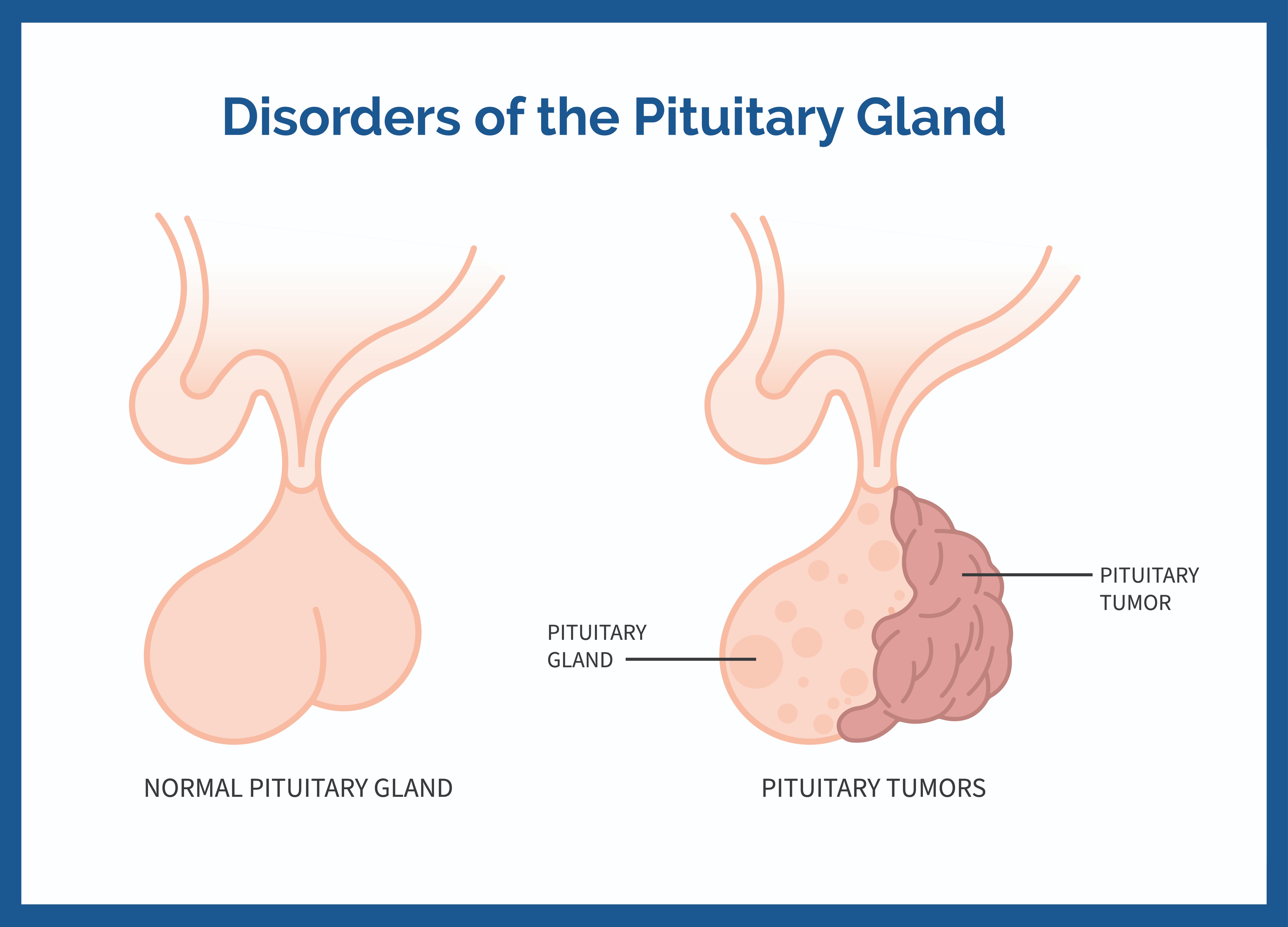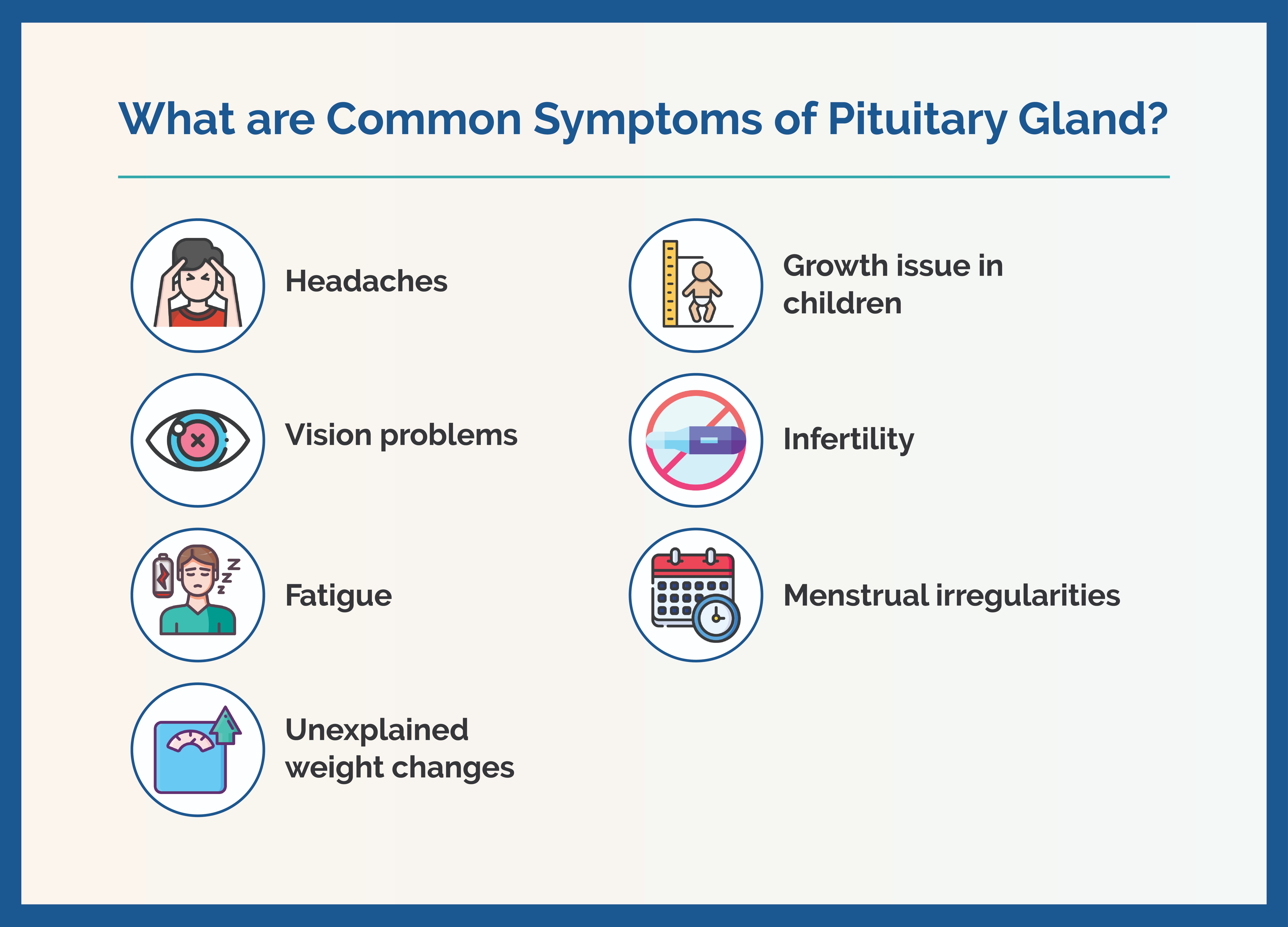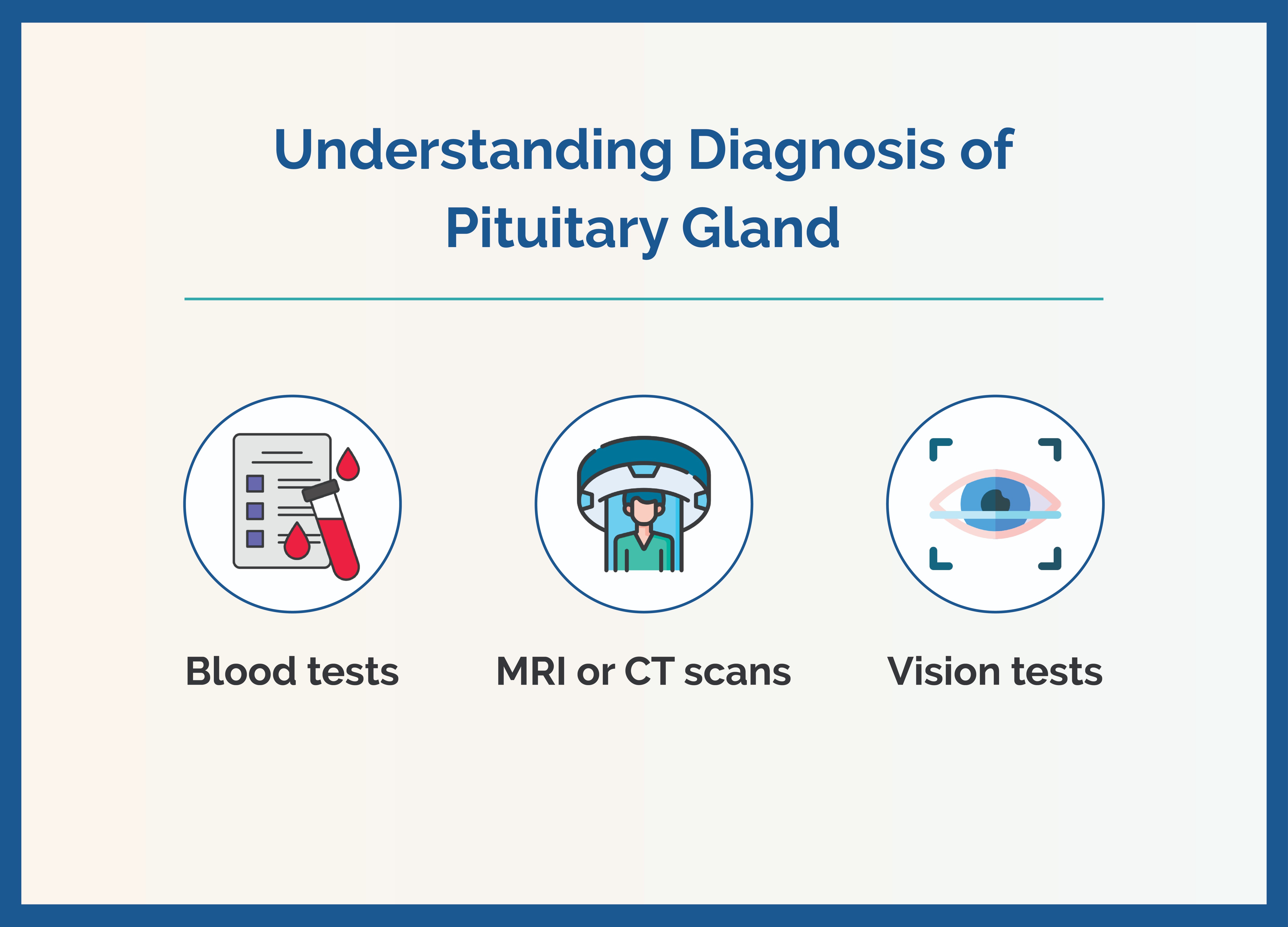FAQs on Disorders of the Pituitary Gland:
What are the most common pituitary disorders?
The most common pituitary disorders include pituitary adenomas, hypopituitarism, hyper
pituitarism, pituitary apoplexy, and empty sella syndrome.
Q2: How are pituitary disorders diagnosed?
Pituitary disorders are diagnosed through blood tests to check hormone levels, imaging
tests like
MRI or CT scans, and sometimes vision tests if the optic nerves are affected.
What are the symptoms of a pituitary tumor?
Symptoms of a pituitary tumor can include
headaches, vision problems, unexplained weight gain or
loss, fatigue, and hormonal imbalances such as irregular menstrual cycles or infertility.
Can pituitary disorders be treated?
Yes, pituitary disorders can often be treated with medications to balance hormone levels,
surgery to
remove tumors, radiation therapy, and hormone replacement therapy.
Is surgery always required for pituitary tumors?
Not always. The need for surgery depends on the size, type, and location of the tumor, as
well as the
severity of symptoms. Some tumors may be managed with medications alone.
What is hypopituitarism?
Hypopituitarism is a condition where the pituitary gland does not produce enough of one or
more of
its hormones, leading to various symptoms depending on which hormones are deficient.
Can pituitary disorders affect children?
Yes, pituitary disorders can affect children, leading to growth issues, delayed puberty,
and other
developmental problems.
Are pituitary disorders hereditary?
While most pituitary disorders are not hereditary, some genetic conditions can increase the
risk of
developing pituitary tumors or other gland-related issues.
What lifestyle changes can help manage pituitary disorders?
Managing stress, maintaining a healthy diet, regular exercise, and following the treatment
plan
prescribed by a healthcare provider can help manage symptoms and improve quality of life.
When should I see a doctor if I suspect a pituitary disorder?
If you experience symptoms such as persistent headaches, vision problems, unexplained
fatigue, or
hormonal imbalances, it is important to see a doctor for a thorough evaluation.



